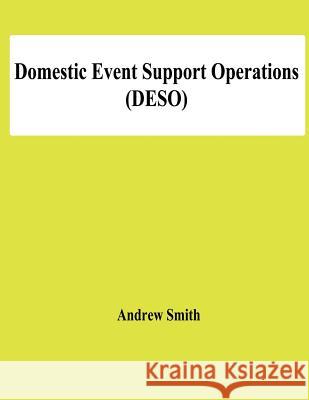Domestic Event Support Operations (DESO) » książka
Domestic Event Support Operations (DESO)
ISBN-13: 9781478192572 / Angielski / Miękka / 2012 / 58 str.
Periodically, governments across the world find them selves hosting major peacetime events, often of an international nature, on their sovereign territory. Examples of these events include international sporting and cultural activities, such as the Olympic Games, the Soccer World Cup, and international expositions; and political gatherings, such as the G8 summit and World Trade Organization meetings. For a number of reasons, the successful conduct of these events is a matter of considerable national importance. To ensure the international community experiences these events at the appropriate standard, governments are inclined to support them even if, technically, they are not themselves conducting them. Frequently, the resources needed to achieve that standard exceed those available to the domestic authorities normally responsible for such events. This lack of resources creates a need for governments to surge briefly to higher levels of capability. To do so co st effectively, governments m ay need to engage the full range of national public and private sector agencies and capabilities, including their national defense establishments (DE),1 to support the major peacetime domestic events their countries host. For the purposes of this paper, the defense activities associated with that support are termed "domestic event support operations" (DESO).
Zawartość książki może nie spełniać oczekiwań – reklamacje nie obejmują treści, która mogła nie być redakcyjnie ani merytorycznie opracowana.











